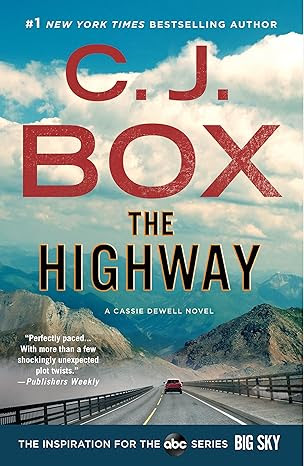The Great Warming: Climate Change and the Rise and Fall of Civilizations by Brian Fagan
Disappointed
Published in 2008 by Bloomsbury Press.
My mother in law bought me three Brian Fagan books for Christmas last year because they were on my Amazon Wish List. I read the first one The Little Ice Age: How Climate Made History, 1300-1850 right away and enjoyed it. I gave it four stars. .
I was saving this one, hoping to enjoy it just as much. Now, I am worried that I'll never muster enough interest to read the third one.
The Great Warming: Climate Change and the Rise and Fall of Civilizations seems rushed - a poorly edited and a poor man's version of Jared Diamond's Collapse: How Societies Choose to Fail or Succeed with some global warming hype thrown in for good measure. Many of the cultures covered by Fagan were actually covered in Diamond's more detailed book.
Fagan looks at the time of the Medieval Warming Period, approximately from 800 AD to 1300 AD, and the effects of this slightly warmer time on numerous societies, including Western Europe, the Mongols, the Inuit, the Pueblos, the peoples of California, China, Easter Island and the Khmer of Southeast Asia. This is not a long book so there is just a snapshot of each civilization. Fagan notes that the data suggests that the Medieval Warm Period was a time of frequent droughts for nearly everyone but Central Asia and Europe. He points to research that suggests El Nino events caused or contributed greatly to the Medieval Warming Period.
Fagan theorizes that the Warming Period destroyed multiple civilizations and that we may suffer the same fate (pages 238-242). But, Fagan fails to note what he himself has written throughout the book - we do not understand climate systems. We think that some of these things may (might, probably, the data suggests - you pick the euphemism) be related but in reality we are unsure. Yes, we are warmer now than we were in 1860, at the end of the Little Ice Age but our warming may or may not have a thing to do with the warming of the past. They may be caused by different things. Fagan goes with the theory of man-made global warming which means his dire warnings from the past ("Today, we are experiencing sustained warming of a kind unknown since the Ice Age. And this warming is certain to bring drought..." - p. 239) are probably pointless since they were not caused by man-made global warming. Fagan points out the droughts during the Medieval Warming Period were caused by El Nino events that lasted for years. Were those events caused by the heat or did they create the heat? I suggest Fagan has fallen victim to the old causation/correlation trap. Certainly there is not enough hard data to suggest that the weather patterns of the Medieval Warming Period will be repeated in the 21st Century.
Fagan's thesis of man-made global warming (and the near-constant nagging throughout the book) is weakened by his own charts on pages 17 & 19 which clearly show a cooler period ending about 800 AD, a warmer period from 800-1300, a cooler period from 1350-1860 and a warmer period from 1860 to the present. The pattern is cool-warm-cool-warm. All of the comments about how we don't understand climate and the cool-warm-cool-warm pattern negate a good portion of the book.
There are other niggling details, such as the self-contradictory paragraph on page 123 that notes that NO ONE in the history of the entire world depended on acorns as much as the California Indians. Except, of course, for the Syrians that depended on them for their ENTIRE diet 14,000 years ago that he mentioned earlier in the same paragraph. His explanation of why the Pueblos were abandoned by a Anasazi flies in the face of more recent scholarship. Fagan makes it sound orderly ("Fortunately, the ancient traditions kicked in and people adjusted by moving away, household by household." - page 136) even though there is evidence some Pueblos were burned and were hastily abandoned (their belongings were left behind and scattered about) and there may have been widespread cannibalism (he poo-poos it as a bit of "ritual cannibalism"). To me that sounds like chaos, civil war or possibly invasion, not a gradual decline and walking away from a civilization.
For me, the final straw was the offhand comment on page 153 that maybe the Mayans could have stopped Cortes from invading Central Mexico and defeating the Aztecs if they hadn't have collapsed due to the Warm Period. Cortes landed in Veracruz. Veracruz was not a Mayan area. They were influenced by trade with Mayans but they were not Mayan.
I am hardly an expert, but if I spot these problems how many more are there?
So, my final assessment in a word: Disappointed.
I rate this book 2 stars out of 5
This book can be found on Amazon.com here: The Great Warming: Climate Change and the Rise and Fall of Civilizations by Brian Fagan.
Reviewed on November 6, 2009.
I was saving this one, hoping to enjoy it just as much. Now, I am worried that I'll never muster enough interest to read the third one.
The Great Warming: Climate Change and the Rise and Fall of Civilizations seems rushed - a poorly edited and a poor man's version of Jared Diamond's Collapse: How Societies Choose to Fail or Succeed with some global warming hype thrown in for good measure. Many of the cultures covered by Fagan were actually covered in Diamond's more detailed book.
Fagan looks at the time of the Medieval Warming Period, approximately from 800 AD to 1300 AD, and the effects of this slightly warmer time on numerous societies, including Western Europe, the Mongols, the Inuit, the Pueblos, the peoples of California, China, Easter Island and the Khmer of Southeast Asia. This is not a long book so there is just a snapshot of each civilization. Fagan notes that the data suggests that the Medieval Warm Period was a time of frequent droughts for nearly everyone but Central Asia and Europe. He points to research that suggests El Nino events caused or contributed greatly to the Medieval Warming Period.
Fagan theorizes that the Warming Period destroyed multiple civilizations and that we may suffer the same fate (pages 238-242). But, Fagan fails to note what he himself has written throughout the book - we do not understand climate systems. We think that some of these things may (might, probably, the data suggests - you pick the euphemism) be related but in reality we are unsure. Yes, we are warmer now than we were in 1860, at the end of the Little Ice Age but our warming may or may not have a thing to do with the warming of the past. They may be caused by different things. Fagan goes with the theory of man-made global warming which means his dire warnings from the past ("Today, we are experiencing sustained warming of a kind unknown since the Ice Age. And this warming is certain to bring drought..." - p. 239) are probably pointless since they were not caused by man-made global warming. Fagan points out the droughts during the Medieval Warming Period were caused by El Nino events that lasted for years. Were those events caused by the heat or did they create the heat? I suggest Fagan has fallen victim to the old causation/correlation trap. Certainly there is not enough hard data to suggest that the weather patterns of the Medieval Warming Period will be repeated in the 21st Century.
Fagan's thesis of man-made global warming (and the near-constant nagging throughout the book) is weakened by his own charts on pages 17 & 19 which clearly show a cooler period ending about 800 AD, a warmer period from 800-1300, a cooler period from 1350-1860 and a warmer period from 1860 to the present. The pattern is cool-warm-cool-warm. All of the comments about how we don't understand climate and the cool-warm-cool-warm pattern negate a good portion of the book.
There are other niggling details, such as the self-contradictory paragraph on page 123 that notes that NO ONE in the history of the entire world depended on acorns as much as the California Indians. Except, of course, for the Syrians that depended on them for their ENTIRE diet 14,000 years ago that he mentioned earlier in the same paragraph. His explanation of why the Pueblos were abandoned by a Anasazi flies in the face of more recent scholarship. Fagan makes it sound orderly ("Fortunately, the ancient traditions kicked in and people adjusted by moving away, household by household." - page 136) even though there is evidence some Pueblos were burned and were hastily abandoned (their belongings were left behind and scattered about) and there may have been widespread cannibalism (he poo-poos it as a bit of "ritual cannibalism"). To me that sounds like chaos, civil war or possibly invasion, not a gradual decline and walking away from a civilization.
For me, the final straw was the offhand comment on page 153 that maybe the Mayans could have stopped Cortes from invading Central Mexico and defeating the Aztecs if they hadn't have collapsed due to the Warm Period. Cortes landed in Veracruz. Veracruz was not a Mayan area. They were influenced by trade with Mayans but they were not Mayan.
I am hardly an expert, but if I spot these problems how many more are there?
So, my final assessment in a word: Disappointed.
I rate this book 2 stars out of 5
This book can be found on Amazon.com here: The Great Warming: Climate Change and the Rise and Fall of Civilizations by Brian Fagan.
Reviewed on November 6, 2009.












Comments
Post a Comment